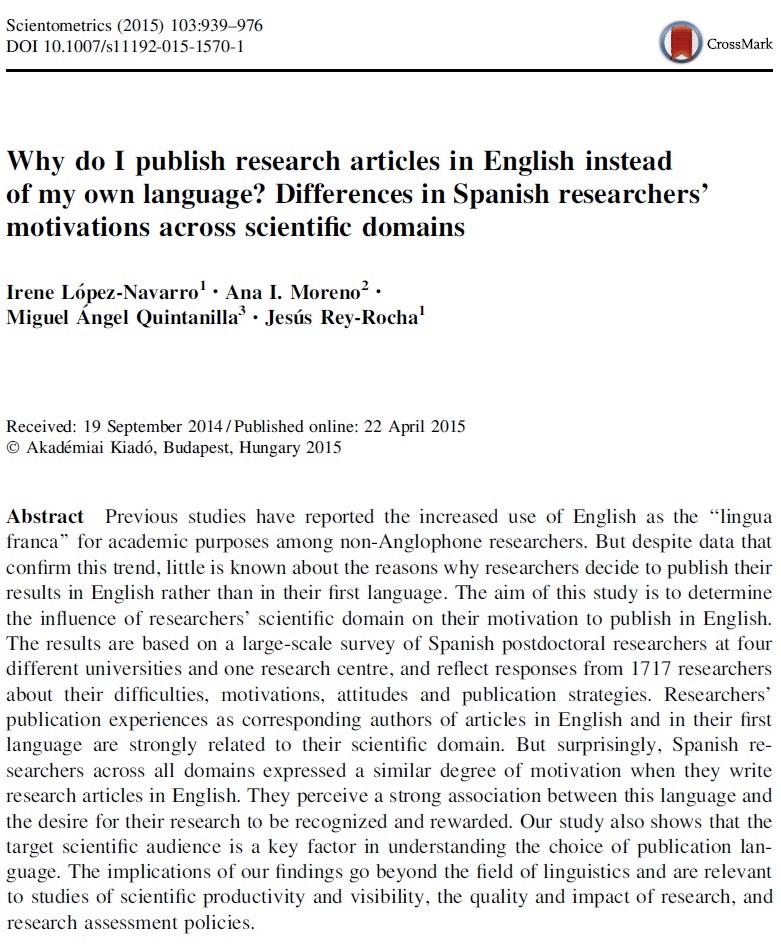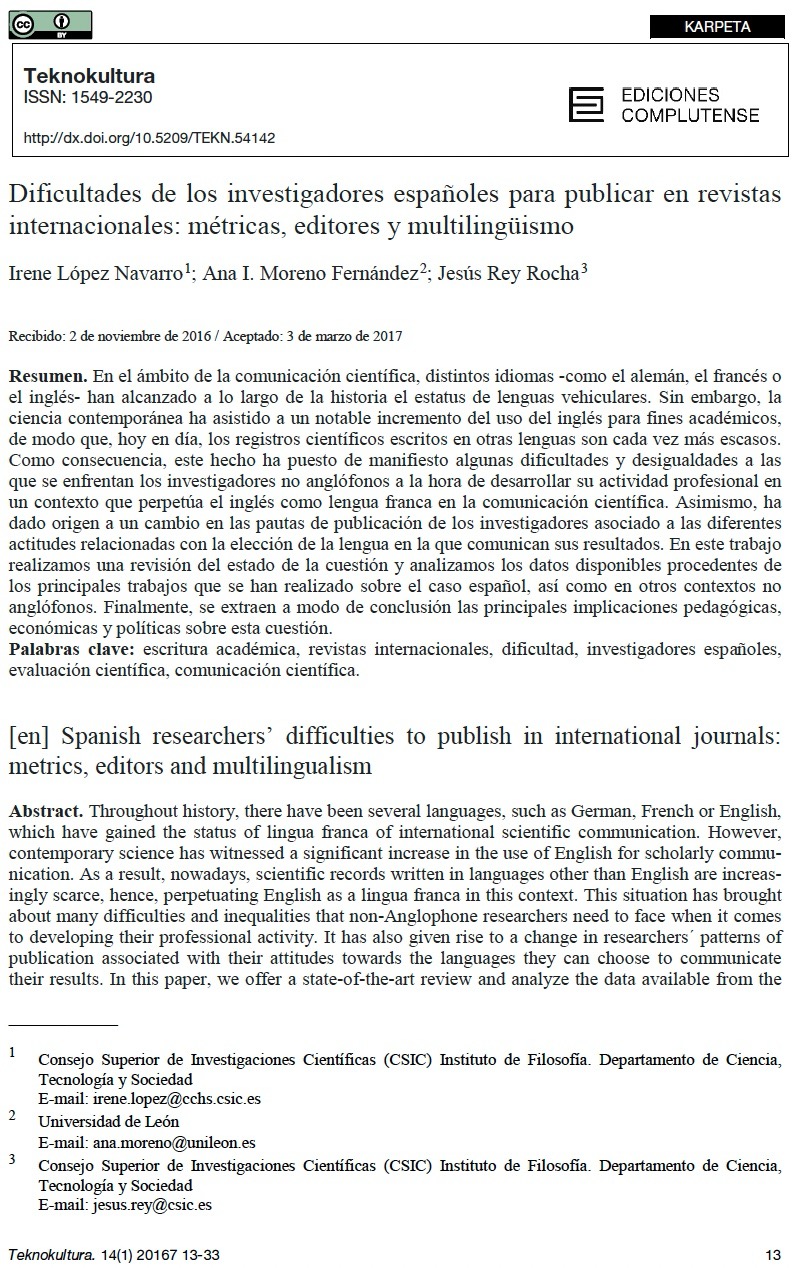Needs Analysis > RESULTS
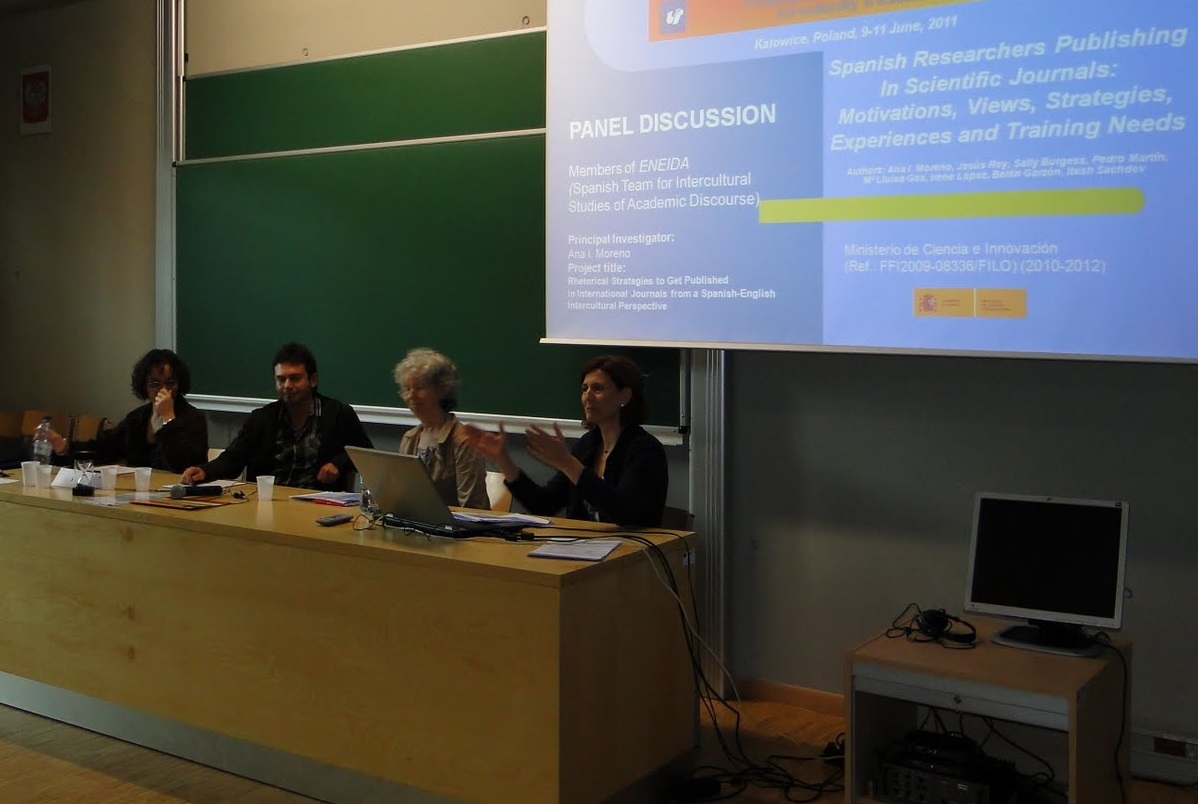
In Phase 1, ENEIDA team members conducted specific studies of Spanish researchers’ motivations, attitudes, strategies, experiences, difficulties and needs regarding ERPP versus SRPP. These studies focused on particularly relevant academic fields and across fields, drawing data from the ENEIDA Database.
Some of these studies have already been presented at international and national conferences, published in relevant international and national journals (see Dissemination actions) and provided insights for further research and practice.
The greatest milestone of Phase 1 was The ENEIDA Questionnaire, which is available from https://eneida.unileon.es/eneidaquestionnaire.php.
Our survey findings suggest high levels of interest in ERPP among participants (Moreno et al., 2011a). In fact, 64% of respondents expressed interest in future ERPP training, and 96% were willing to receive information about participating in subsequent phases of the project. The research article (RA) was identified as the most relevant genre for us to focus on. Consequently, most of our studies have concentrated on self-perceived RA publication difficulties, motivations, strategies, attitudes and training needs, both within specific knowledge areas and across knowledge areas.
Our first publication indicates that the Discussion section is perceived as the most challenging to write for English-medium journals across four broad knowledge areas (Moreno et al., 2012). This difficulty cannot be fully explained by the researchers’ lower level of proficiency in English (L2). We propose the rhetorical transfer hypothesis as a possible explanation for their additional difficulty. Our results also reveal that the perceived difficulty in writing RA discussions in English (L2) does not noticeably decrease until Spanish researchers report high or very high levels of proficiency in English (L2) for academic or general purposes or have published, on average, at least 37 RAs as corresponding authors in English-medium journals over the previous ten years.
A study focusing on the scholars in Medicine reveals an overall positive attitude towards writing in English, despite difficulties with specific discourse features and the most challenging sections and aspects of the RA (Martín et al, 2014). In the fields of Pedagogy, Psychology and Sociology, the results indicate a generalised need for training in specific areas of academic writing, such as the rhetorical sections of the RA and the most common problems encountered by Spanish authors when writing their papers in English (Gea-Valor et al, 2014).
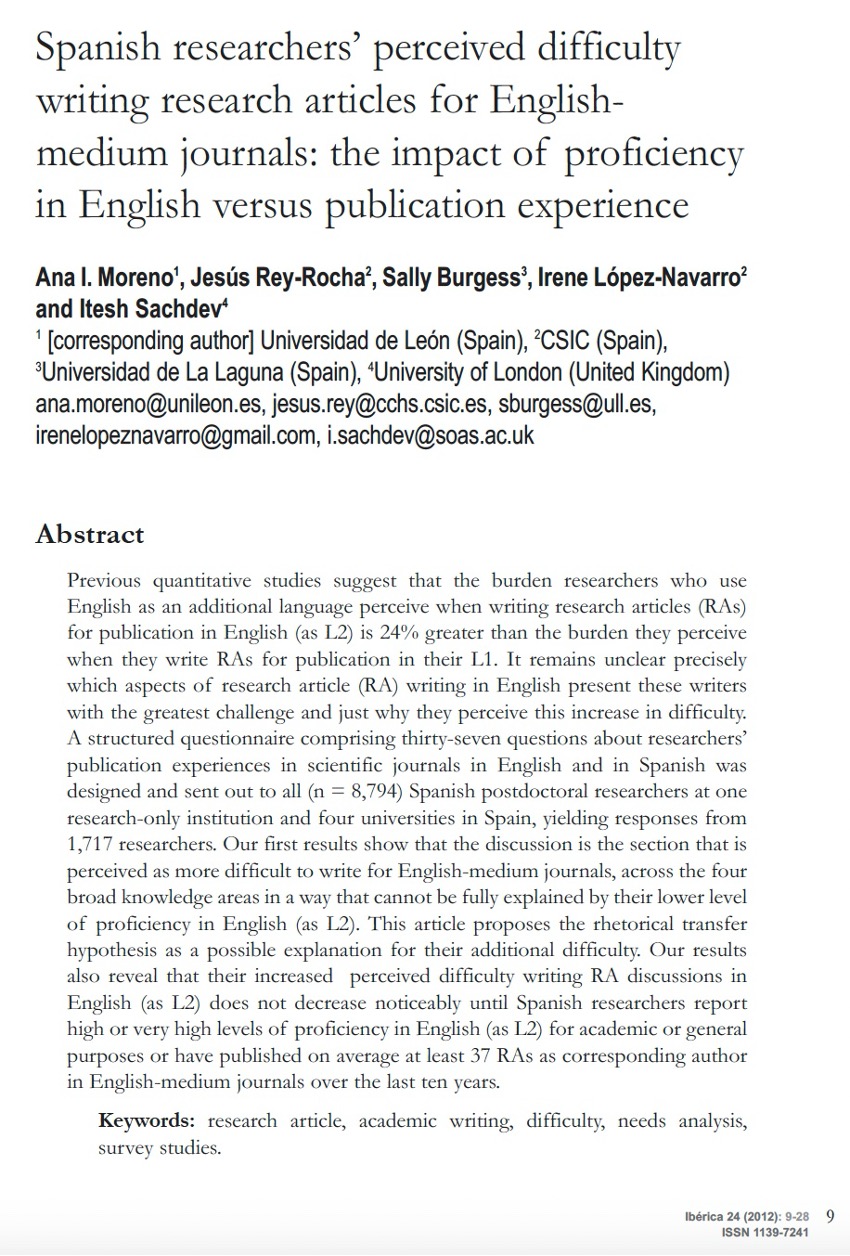
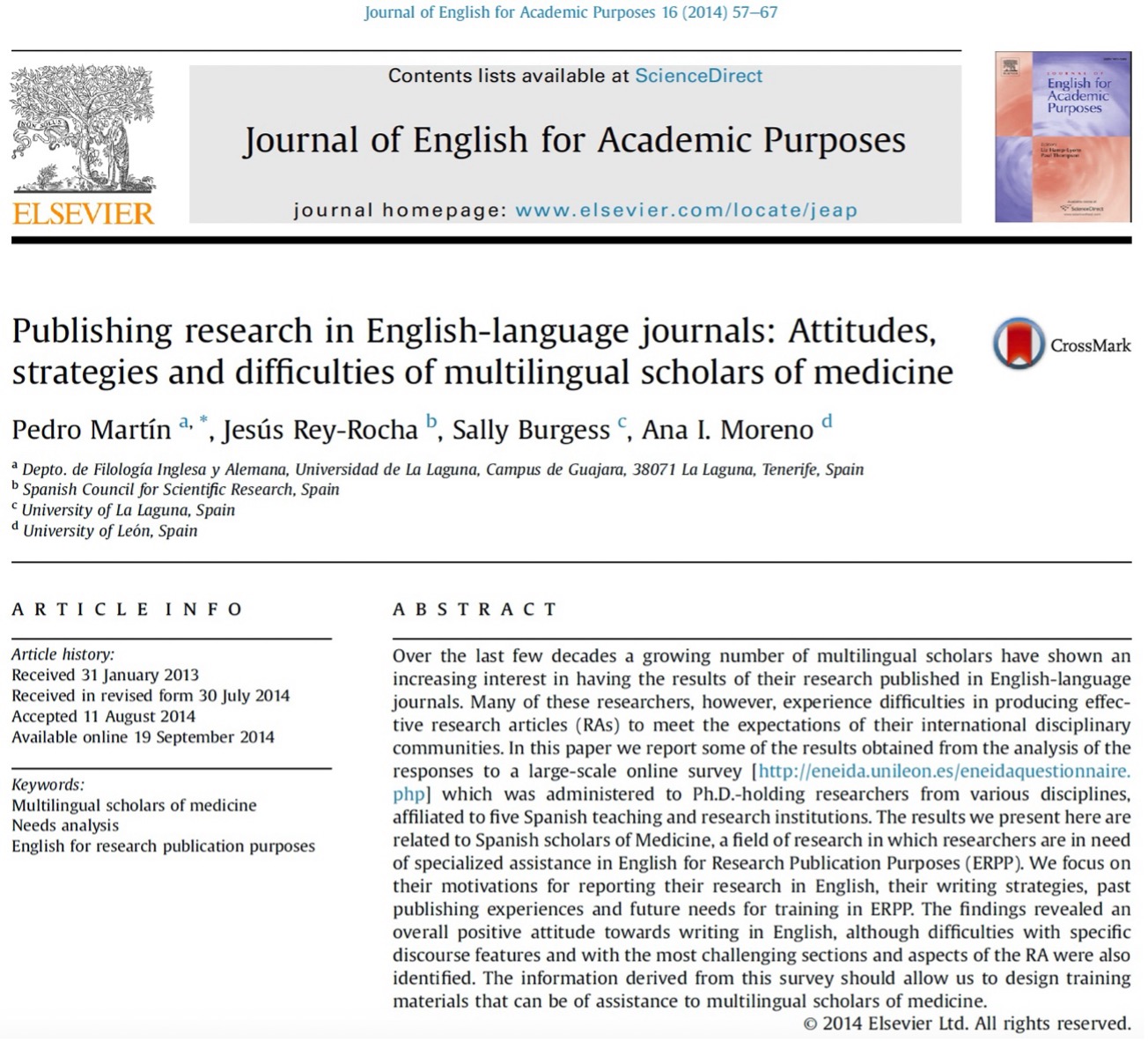
Comparing scholars in History and Psychology regarding research publication in the two languages, one of our studies shows how the motivations of these scholars, along with the strategies and resources available to them, determine their language selection (Burgess et al. 2014). Although the two groups of scholars differ in their attitudes towards publication in English, they share a willingness to negotiate the challenges presented by institutional constraints, making strategic decisions about the choice of language for publication and their own language development.
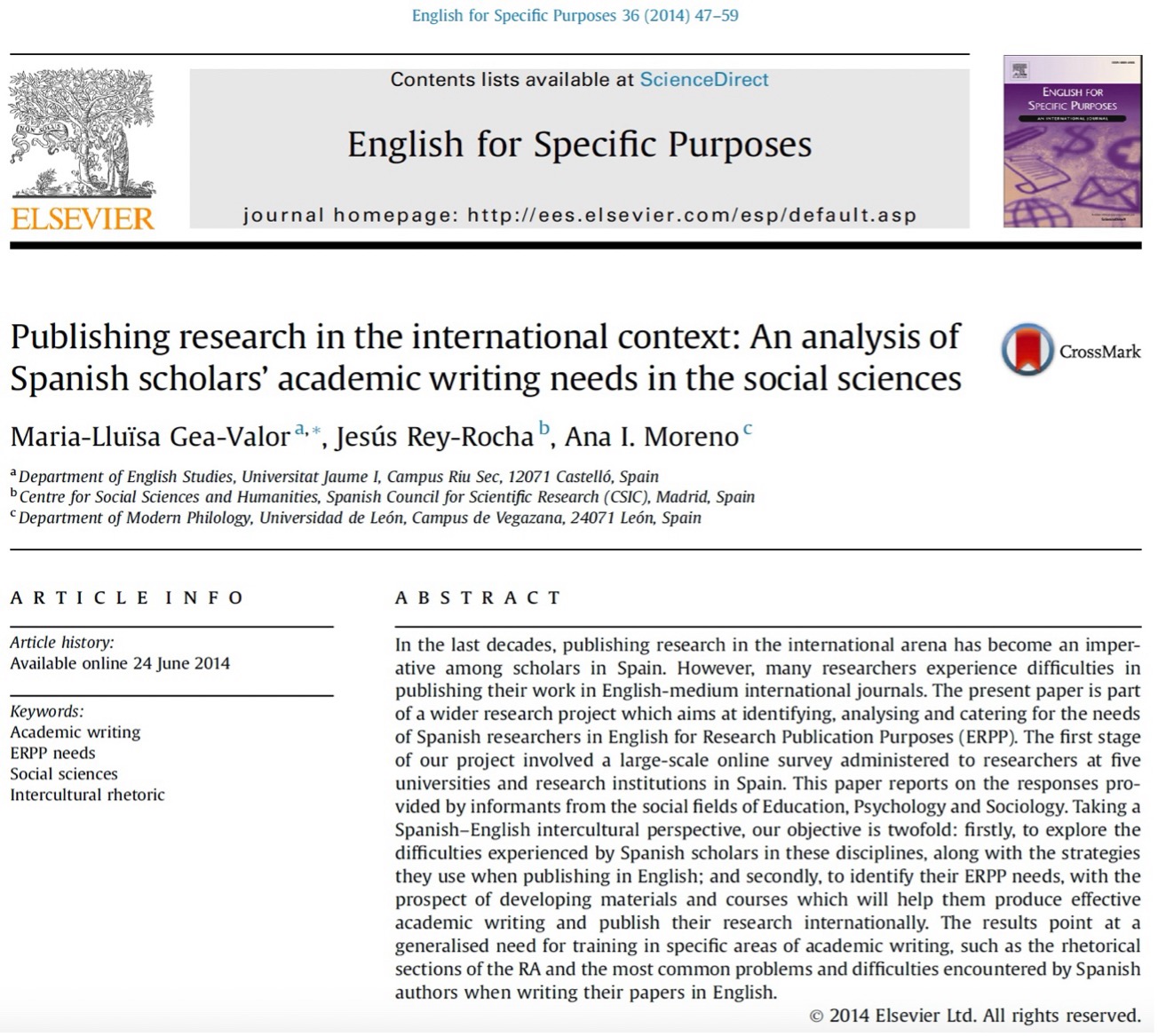
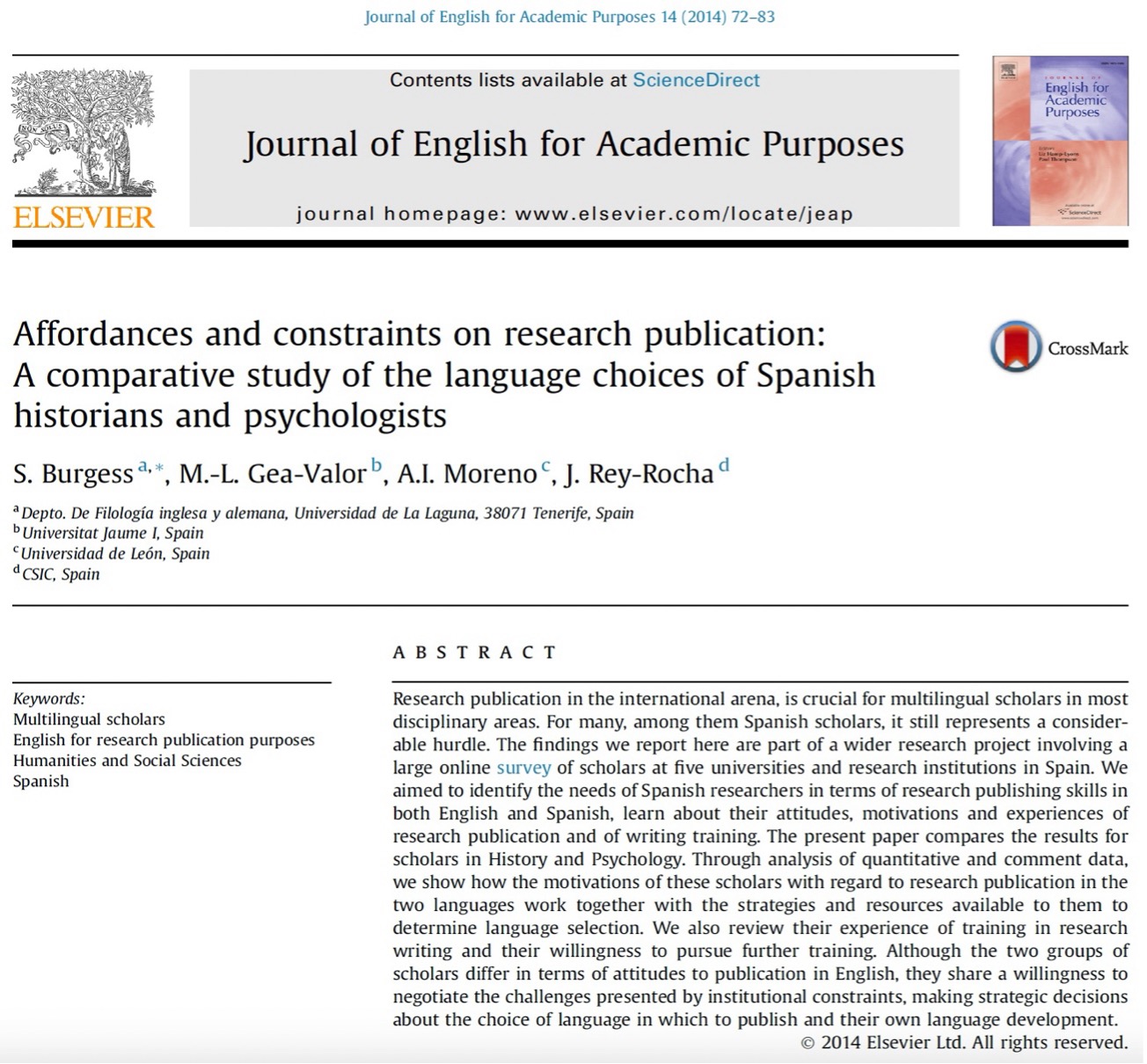
Two studies comparing scholars in Chemistry and Economics reveal that these disciplines are relatively internationalised, with much research produced and consumed in English (Lorés et al., 2014 and Mur et al., 2014). However, significant differences exist between them, showing different degrees of internationalisation, disciplinary idiosyncrasies, and expectations. This varying degree of internationalisation results in different rhythms in the enculturation processes for international communication in English and different difficulties and writing strategies.
All these studies have implications for English for Academic Purposes (EAP) research and pedagogy. One specific paper discusses how raising learners’ awareness of the similarities and differences in the rhetorical strategies preferred by the members of different disciplinary communities can help L2 writers feel more confident about their rhetorical choices, depending on the context and audience they are addressing (Martin, 2013).
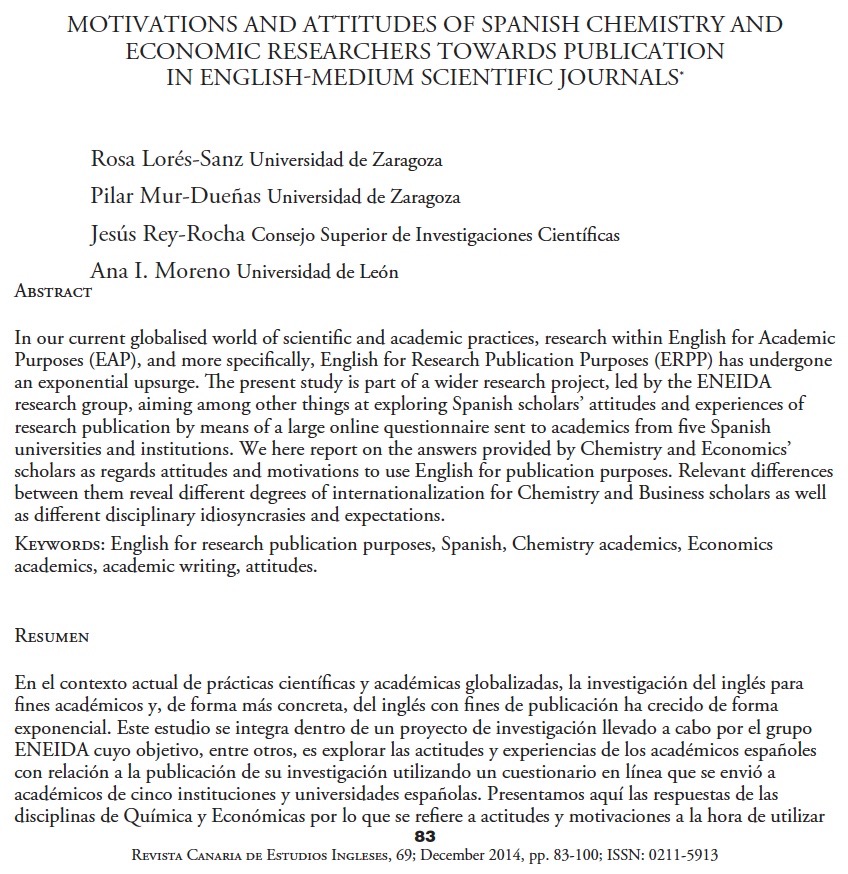
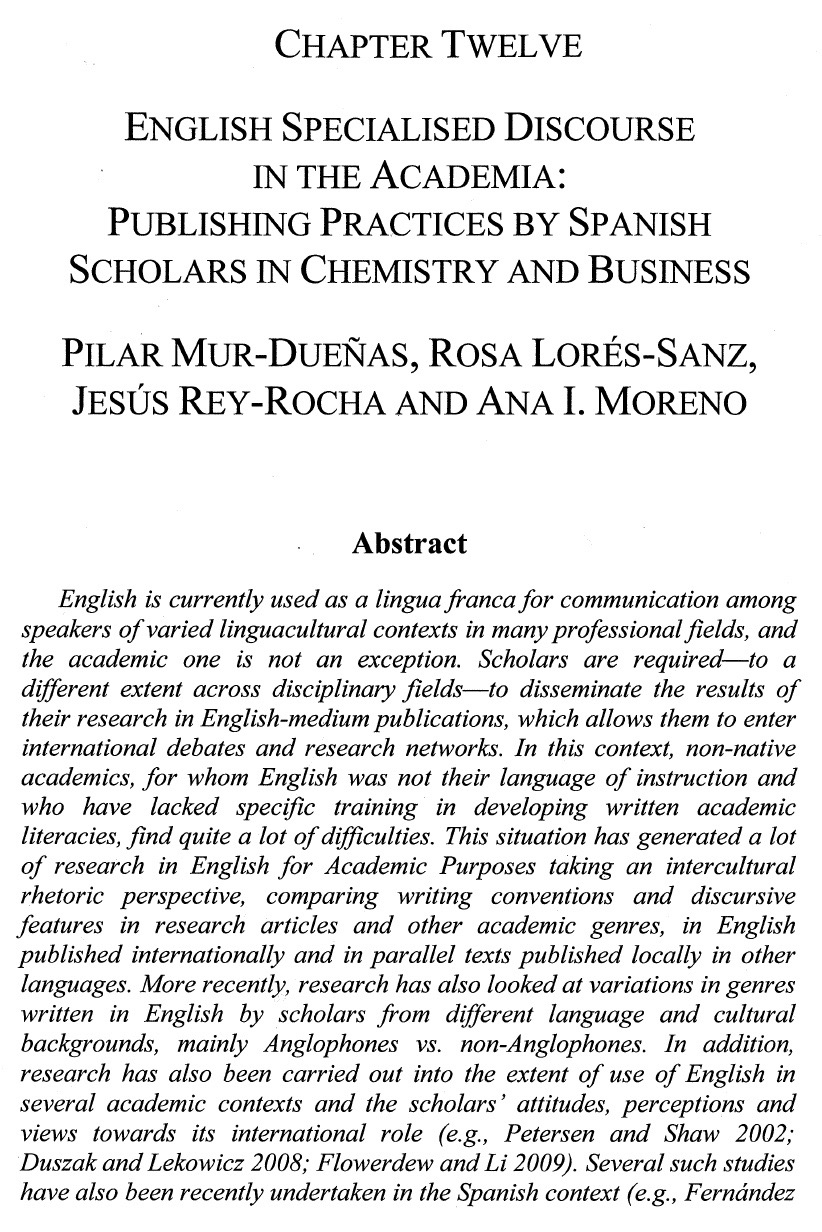
A further study proposes a theoretical framework for the comparative study of researchers’ motivations for publishing either in English as an additional language or their first language (López-Navarro et al., 2015). This framework presents a view of motivation as dynamic, multidimensional, and multilevel. Results show an instrumental use of publication in English and fragmented social and ideological motivations for the use of Spanish.
López-Navarro et al. (2015) demonstrate how researchers’ publication experiences as corresponding authors of articles in English and their first language are strongly related to their scientific domain. Surprisingly, Spanish researchers across all domains expressed a similar degree of motivation when writing research articles in English, associating this language with the desire for their research to be recognised and rewarded. They also highlight that the target scientific audience is a key factor in choosing publication language. The implications of these findings extend beyond the field of applied linguistics and are relevant to studies of scientific productivity and visibility, the quality and impact of research, and research assessment policies.
López Navarro, Moreno, and Rey Rocha (2017) conducted a study titled "Dificultades de los investigadores españoles para publicar en revistas internacionales: métricas, editores y multilingüismo," which explores the challenges and inequalities faced by non-Anglophone researchers in the context of English as the lingua franca of scientific communication. The study reviews the state of the field and analyses data from Spain and other non-Anglophone contexts. It highlights how the dominance of English impacts publication practices, revealing pedagogical, economic, and political implications. Spanish researchers reported significant difficulties related to metrics, editorial processes, and multilingualism. These challenges necessitate a shift in publication patterns and strategies, emphasising the need for supportive measures to address these issues and facilitate more equitable scientific communication.
